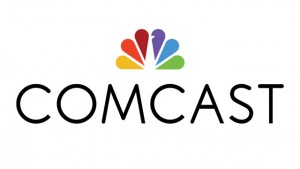So what difference does it make one monopoly buys another monopoly? I say, “Very little.” 
The purpose of this edition of Media Monkey is to provide some alternative thinking to the dominant narrative: that Comcast’s $45-billion purchase of Time Warner is bad for consumers and bad for society.
My point is this: The “bad” part of this was cast in stone a long, long time ago when the burgeoning little cable industry needed the power of monopoly to justify wiring cities and towns.
THE REALITY OF THE SITUATION
So ask yourself: what really prevents Comcast from doubling your rate right now? Absolutely nothing. There is no “other” broadband wire coming into your house – just like there’s no other water pipe, gas main or electricity wire. You are just stuck unless you decide to “cut the cord” and bail.
Right now, “cord cutting” refers ONLY to eliminating the pay TV portion of the triple play. But really, all we’re really talking about here is broadband. If you kill pay TV, the only way you’re going to get over-the-top provider-based content (Netflix, Hulu, etc.) is through the same gosh-darned wire the cable TV provider has strung into your house! While stock shills try to differentiate all their products in new and exciting ways – the fact is that it is ALL IP based data. It is all just the Internet.
And let’s just also dispel any idea that the phone-line-based telco offerings (DSL) are in any way comparable. They’re not.
So frankly, there is nothing preventing Comcast from saying, “Alright folks, your TV and phone are free! We’ll simplify your bill, and all you have to do is pay for broadband.” This immediately stops the revenue leakage associated with cord-cutting since “cable” all of a sudden becomes an all-or-nothing proposition.
Don’t want to take distribution of the Carrot Peeling Network? You’ve lost the Internet. Want to watch Netflix or Hulu? Go right ahead – pay for broadband. Want to go over-the-top and aggregate your own video channel lineup? Go ahead, pay for broadband.
The price of the wire coming into your house is based solely on the research that indicates what the highest price is before people bail, not because there is any meaningful – comparable – competition from another cableco. Please Mayor Murray and all you other hand-wringers – show me were there is meaningful competition for the traffic that comes over a coax wire into the home.
So if Comcast and Time Warner services areas don’t overlap – which they don’t anywhere because every city, town and county in the US has “franchise agreements” that built the original monopolies, where is the impact? How does the consumer suffer any more than he or she already is – living under the current, local, monopoly?
Again, my thesis is that they don’t. Like politics, all cable is local.
So the FCC and DOJ will do their reviews, and Congress will put on a show, and all will wring some carefully sunset-ted promises from Comcast just to make everybody look good.
But the devil is in the details, and unless the consent decree dealing with the arcane policy backwaters like must carry, local production, and net neutrality are rock solid – THOSE are the areas where we’ll see negative impact over time. But those aren’t sexy, and the water is already long ago under those bridges in many ways.
Translation: I see nothing that leads me to believe that Congress and agency rule-makers will strike out to boldly protect localism, neutrality or customer service mandates.
Still though, those issues really have nothing to do with the merging of two monopolies.
COMPENSATION BATTLES
There’s also a strange idea that the merger deal with give Comcast more power over content providers, like say, CBS (a recent battle royal vs. TW).
I argue just the opposite. If I’m CBS, now instead of blacking out 10% of the country by holding out for better compensation, I can black out 30% – knowing full well that the cablecos take the heat since that’s to whom consumers write their monthly checks. In compensation battles, cablecos lose subscribers, content creators don’t.
So now instead of having select local markets up-in-arms about a cessation of programming, I’ve got the whole darned country going nuts. I like my chances if I’m doing deals for a network.
OUR ONLY HOPE IS IN THE FUTURE – AND CABLE WILL ALSO HAVE ITS LUNCH EATEN
In the end, if the satellite providers can ever figure a way to deliver meaningful up/down bandwidth to the home user – look out. That changes things.
Or, if OTA (over the air) broadcasters can use spectrum to somehow up/down the Internet with a digital wi-fi thingamajig – look out. That too changes things.
But until then – you have one wire today. You’ll have one wire tomorrow.
The end.









